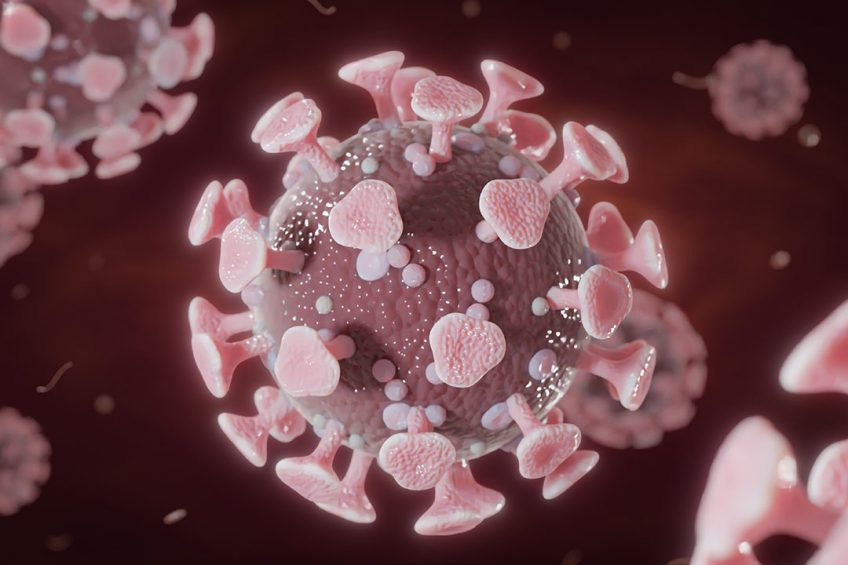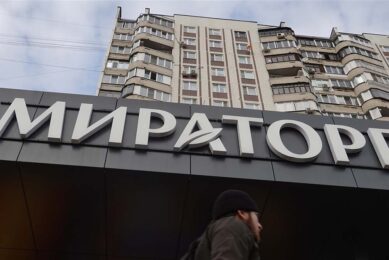Covid-19: Only minor outbreaks at pork plants in Spain

How has Europe’s number 1 pig producing state Spain been doing with regard to Covid-19? A few slaughterhouses in Aragón initially appeared to have relatively high numbers of positive cases, but PCR testing confirmed the numbers were only average.
Most noteworthy was the news reported from Binéfar, a town in Huesca province, Aragón, in the northwest of Spain. 2 slaughterhouses there initially appeared to have quite a number of positive cases, based on rapid serological tests. The daily business of both slaughterhouses did not suffer.
Binéfar: Litera Meat reports Covid-19 cases
At the Litera Meat slaughterhouse 22% of the employees tested positive out of a total of 931 in early May, which attracted attention in Spanish media. The company, however, explained that serological tests only indicate the presence of antibodies and do not tell anything about virus presence. Hence, tests were followed by more accurate PCR testing.
On May 7, Litera Meat revealed that only 15 out of around 1,000 tested employees tested positive, which was roughly 1.6% of the total amount of employees. A percentage that would not be alarming. None of these employees were admitted to hospital but they had to go into quarantine.
Binéfar: Meatpacker Fribin also tests positive
A similar story could be told about Fribin, another meatpacker in Binéfar. This company conducted 657 Covid-19 tests among its workers, obtaining 196 positive cases as a result, which would mean a 30% infection rate. On May 6, however, the company explained that after the rapid test results, a PCR test had been done for each of the concerned workers – and that the test only confirmed 25 positive cases. Furthermore, the company claimed to have taken ‘all necessary measures to restrain this virus’. A full list of the Covid-19 protocol is accessible at the Fribin website.

Covid-19 Up-date
What impact is the pandemic having on the global pig sector and how are they dealing with it.
Work conditions in slaughterhouses
Prior to the Fribin statement, Spanish trade union CSIF had already warned that infection sources might expand to nearby towns, given the work conditions in slaughterhouses: ‘Conglomerations, lack of protective measures, community kitchens and breaches of social distancing rules’. That is why the organisation asked for extraordinary measures regarding the protection of veterinarians and pharmacists.
Catalunya: Awareness of Covid-19
Also in neighbouring autonomous community, Catalonia, the authorities are aware of the occurrence of Covid-19 at slaughterhouses. Data showed that in Lleida, infections were found at 4 meat plants, of which most names were not made public. Catalonia will conduct massive tests to staff of some slaughterhouses in Lleida province.
Nevertheless, Divina Farreny, director of the health regions of Lleida and the High Pyrenees and Aran, stated that the virus outbreaks in the meat plants ‘are just some of the outbreaks’, and they should not be the centre of attention. In total, the number of cases went from 45 (May 7-13) to 142 the following week, representing an increase of 316%.

Elderly homes, agro-food industry and parties
Farreny added that according to the Health Department, among the sources of new infections were elderly homes, health professionals, agro-food industries as well as a massive private party which took place in the city.
Moreover, Farreny added that the rise of the cases are due to the carrying out of 2,000 tests in the area and the population taking a more relaxed attitude to security measures. She also asserted that most cases have shown no symptoms.

Read more about pig production in Spain
Baleares: Trials to slaughterhouse staff
The autonomous community of the Baleares (the island group in the Mediterranean including Majorca and Ibiza) also announced to test all 10 slaughterhouses in the region, meaning that around 60 professionals will get tested. In total, 3 of the sites are poultry slaughterhouses.
According to the local health department, the initiative was taken after some studies had shown that the facilities’ characteristics, such as the low temperatures, could expedite the virus’ spread among their workers.
The authorities emphasised that there was no proof of outbreak among professionals in Baleares, but they want to discard “any type of infection that could affect the workers or the operations of the slaughterhouses in the archipelago.”
 Beheer
Beheer








 WP Admin
WP Admin  Bewerk bericht
Bewerk bericht